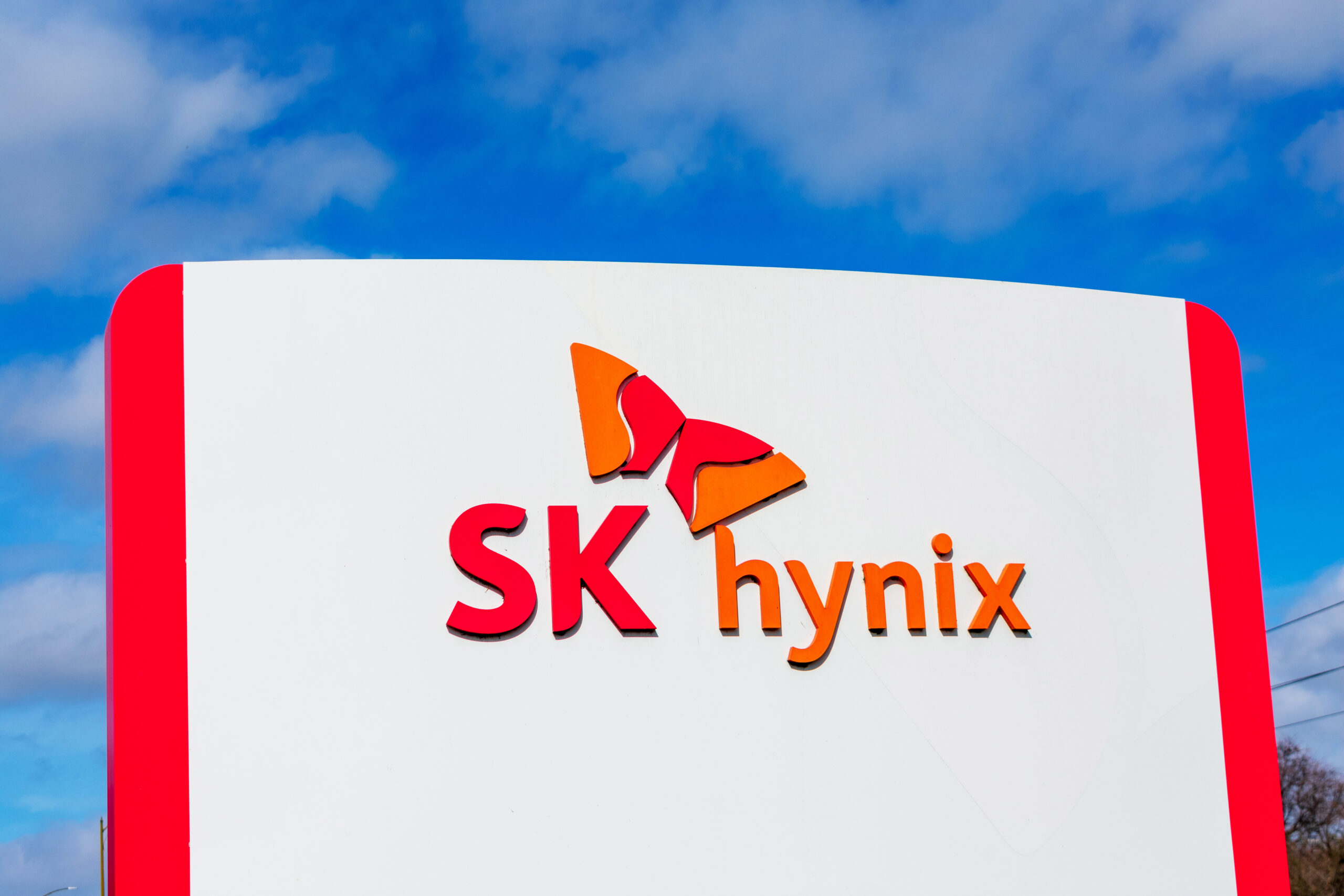Hierarchical Deterministic Cryptocurrency Wallets – What Is An HD Wallet And Why Should You Use It?

Cryptocurrency wallets have become increasingly popular as the crypto market continues to grow. However, there is one type of wallet in particular that stands out from the rest. The Hierarchical Deterministic (HD) crypto wallet. In this blog post, we will explore what HD wallets are and how they compare to other cryptocurrency wallets. We will also discuss why HD wallets are preferred for those looking to store their digital assets securely.
What are Hierarchical Deterministic Crypto Wallets?
Hierarchical Deterministic (HD) crypto wallets are a type of digital wallet that uses a hierarchical tree structure to generate a deterministic set of private keys from a single seed. The seed is a random string of words from which the wallet generates a master secret key and master chain code. These are used to derive subkeys, which can be further divided into a tree structure of child keys.
Because the keys are derived from a single seed, it is easy to back up and restore the wallet. The user can generate as many public addresses as needed without compromising security.
It also allows for more organization and privacy since you can create different subkeys for different purposes. HD wallets are commonly used in hardware and software wallets, such as the Trezor and Ledger hardware wallets and the Electrum software wallet.
Popular HD Wallets
Some popular HD (Hierarchical Deterministic) wallets include:
- Trezor
- Ledger
- Exodus
- MyEtherWallet
- Electrum
- Jaxx
- Copay
- BRD
- Edge
These wallets generate a seed phrase during setup, which can be used to recover the wallet in the event of loss or damage. They also use a hierarchical structure to generate unique addresses for each transaction, providing increased security and privacy.
How Does a Hierarchical Deterministic Wallet Work?
A hierarchical deterministic (HD) wallet is a cryptocurrency wallet that uses a unique set of algorithms to generate a hierarchy of deterministic keys. This means that it can cause an unlimited number of private keys, all of which can be derived from a single master seed. This master seed is a secret string of words or numbers used to generate the entire tree of critical pairs, giving you control over your assets without worrying about remembering or backing up individual keys.
In HD wallets, each key is generated from a unique chain of cryptographic hashes, meaning that all private keys are derived from the same starting point but are unique and secure. This feature allows you to store a wide variety of coins and tokens without worrying about keeping individual keys for each one.
Essentially, HD wallets provide an extra layer of security by ensuring that the private keys are unique and can be recovered using the master seed. By having a single source of recovery, users can ensure that their funds are safe in case of any issues.
What are Deterministic and Non-Deterministic Wallets?
A deterministic wallet, also known as a hierarchical deterministic (HD) wallet, is a type of cryptocurrency wallet that generates a sequence of private keys from a single seed. The seed creates a hierarchical tree of private and public keys, which can cause an unlimited number of addresses. Because the keys are generated from the same seed, the wallet can be easily backed up or restored by simply saving the seed.
A non-deterministic wallet, also known as a random number generator (RNG) wallet, is a type of cryptocurrency wallet that generates a new private key for each transaction. These wallets do not use a seed, so each private key is entirely independent and cannot be derived from any other key. Because the keys are unrelated, these wallets cannot be easily backed up or restored.
Deterministic wallets are considered more secure and convenient to use than non-deterministic wallets as they are easy to back up and restore and have less chance of crucial loss or theft as only one seed is needed.
What Are the Benefits and Drawbacks of Using an HD Wallet?
An HD (Hierarchical Deterministic) wallet is a digital wallet that generates a hierarchical tree-like structure of private/public key pairs from a single seed. The benefits of using an HD wallet include the following:
Increased Security: An HD wallet uses a single seed to generate an infinite number of private keys, which makes it much more difficult for hackers to gain access to your funds.
Improved Privacy: HD wallets allow users to generate new addresses for each transaction, which enhances privacy by making it harder to track the movement of funds.
Backup and Recovery: Because an HD wallet is generated from a single seed If the device on which the wallet is stored is lost or damaged, it can be backed up and retrieved.
The Drawbacks of Using an HD Wallet Include the Following:
Complexity: HD wallets can be more complex to set up and use than more specific wallet types, which may make them less accessible to novice users.
Risk of Seed Loss: If the seed is lost or forgotten, the user will lose access to all the funds in the wallet.
Risk of Seed Theft: If the seed is stolen, the thief will access all the funds in the wallet.
Risk of Seed Compromise: If the seed is compromised, the attacker will access all the funds in the wallet.
Overall, HD wallets offer improved security and privacy over more straightforward wallet types, but they also come with increased risk if the
Understanding Hierarchical Deterministic (HD) Wallets
HD uses a hierarchical tree-like structure to derive multiple private keys from a single seed. This seed is a random string of words or numbers used to generate all the private keys for the wallet. The benefit of using an HD wallet is that it allows for creating many unique addresses while only requiring the user to back up one seed.
HD wallets can also be used to create sub-accounts, or “accounts,” each with its own set of private keys, which can help organize funds or share access to a wallet with others.
HD Crypto Wallet Improvements
Since the introduction of hierarchical deterministic (HD) wallets, there have been significant improvements in security and convenience. The first improvement was the introduction of multi-signature addresses. Multi-signature addresses are similar to regular addresses but require multiple signatures from different parties to approve a transaction. This extra layer of security makes it much harder for hackers to access funds.
Another improvement has been the addition of extended public keys. These extended public keys allow users to generate unlimited unique addresses while maintaining the exact seed phrase. Users can safely and securely store their coins on different addresses without worrying about backing up multiple wallets.
Finally, HD wallets have been improved through the integration of hardware wallets. Hardware wallets provide an even higher level of security by storing the user’s private keys offline. This makes it impossible for hackers to access funds, even if the device is compromised. In addition, hardware wallets often offer a wide range of features, such as password management, transaction signing, and backup recovery options.
Overall, these improvements have helped make HD wallets more secure and user-friendly. They provide users with an easy way to store and manage their digital currencies without compromising their safety or privacy.
Things to Keep in Mind When Using HD Wallets
- It’s crucial to bear the following in mind when utilizing HD wallets:
- Keep your seed phrase and private keys secure. Since there is no other method to access your money when using an HD wallet, this is the most crucial step.
- Remember that HD wallets create a new address for every transaction, making it challenging to keep track of your transactions.
- Be careful to safely store a copy of your keys and seed phrases. If your gadget is lost or stolen, you can retrieve your money thanks to this.
- Aware of phishing efforts, only enter your keys or seed phrase into a website or program you are sure is trustworthy.
- Use an HD wallet service with a solid reputation for security, please.
- Use stealth addresses or other privacy-enhancing tools to safeguard your privacy and be aware of the risks associated with sharing your public addresses.
Who Came up with the Idea for HD Wallets?
The concept of hierarchical deterministic wallets was developed in 2012 by Pieter Wuille, an engineer and Bitcoin Core developer. Wuille’s idea was to create a wallet structure that allowed users to generate an infinite number of private keys and addresses from a single seed. This would provide an extra layer of security, as users no longer had to worry about their wallet data being stolen, as the seed is all that’s required to recover it.
Additionally, this structure would allow users to use a single address for multiple transactions instead of generating a new one each time they wanted to send or receive funds. This would make Bitcoin more user-friendly and provide greater privacy and security.
The concept of HD wallets was further refined by the development of BIP32, BIP39, and BIP44. These protocols allow for the generation of public and private keys and users to store multiple crypto wallets under one master key. Implementing these protocols has been integral to the widespread adoption of HD wallets.
Today, HD wallets are used by millions of people around the world as a secure way to store and manage their digital assets. HD wallets also have a wide range of applications in finance, such as being used for multi-signature transaction processes.
What Does an Extended Key Look Like?
In a hierarchical deterministic (HD) wallet, a private key and a public key are represented by an extended key, a serialized format. The letters “xprv” or “xpub” are frequently the first, and then a long string of alphanumeric characters follows. The generation of child critical pairs from a parent key pair is possible with the extended key format, which can increase the security and management of private keys in a wallet.
An extended key represents an HD wallet that includes that wallet’s public and private keys. Extended keys are longer than regular keys and are represented as strings of random characters. They are usually encoded in Base58Check, a form of encoding used to protect data transmitted over the internet.
An extended key is composed of a number of parts: a version (usually 2 bytes), a depth (1 byte), a fingerprint (4 bytes), a child number (4 bytes), and a chain code (32 bytes). The version and depth indicate the type of key (public or private) and how deep it is in the derivation tree, respectively.
The fingerprint is derived from the parent key’s hash, and the child number indicates the key derived from the parent. Finally, the chain code is used to derive additional children keys, which are the same for each child from the same parent.
How Does Bitcoin HD Wallet Work?
A Bitcoin HD (hierarchical deterministic) wallet allows users to generate an unlimited number of unique addresses from a single seed phrase. The seed phrase is usually a set of words that can be used to restore the wallet and all of its addresses in case it is lost or stolen.
The HD wallet generates a tree-like structure of critical pairs, with the seed phrase as the tree’s root. A private key and its accompanying public key make up each key pair.
While the public key is normally used in order to receive money, the private user key is used for signing transactions. HD wallets use a mathematical algorithm to generate the key pairs, which ensures that each address is unique and that the private key for each address can be derived from the seed phrase.
Are HD Wallets Safe?
Hierarchical Deterministic (HD) wallets are a type of wallet that offers enhanced security and privacy. They are often touted as more secure than other types of wallets due to how they generate and store your keys. In a nutshell, HD wallets use a single master key to generate an entire tree of private and public keys. Since all your addresses are derived from this one seed word, hackers need help accessing your assets.
Furthermore, HD wallets also incorporate additional security measures such as 2-factor authentication and multi-signature technology. This means you will need to enter a code or sign a transaction before any changes can be made to your wallet. This helps protect you against malicious actors trying to reach your funds.
Overall, HD wallets are considered one of the safest ways to store cryptocurrency. As long as you back up your seed phrase and keep it secure, your funds should be safe & secure.
Which is safer MetaMask or Trust Wallet?
It is difficult to say which wallet is “safer” without more context. MetaMask and Trust Wallet are popular and well-regarded wallet options in cryptocurrency, but they have different features and security measures. For example, MetaMask is a browser extension, while Trust Wallet is a mobile app. MetaMask is also open-source, while Trust Wallet is not.
As a general rule, it’s essential to research and compares different wallet options to determine which one best meets your needs and comfort level with security. Additionally, it is necessary always to follow best practices for securing your wallet, such as creating strong passwords and storing your private keys in a safe place.
What Are the Types of Decentralized Wallets?
There are several types of decentralized wallets, including:
Software Wallets: These are wallets that are downloaded and installed on a user’s computer or mobile device.
Paper Wallets: These are printed on paper and used to store a user’s private keys offline.
A Brain Wallet is a wallet generated from a passphrase and used to store a user’s private keys offline.
Multi-sig Wallets: These are those wallets that usually require multiple signatures before any transaction is made.
Note that decentralized wallets differ from centralized wallets, where any private key is stored on a third-party server.
Is Metamask a Hierarchical Deterministic Wallet?
Yes, MetaMask is a hierarchical deterministic (HD) wallet. HD wallets use a single seed phrase to generate a tree-like structure of private/public key pairs, allowing for the creation of many unique addresses from a single seed. This will enable users to quickly back up and restore their wallets and manage multiple addresses easily.
Is Ledger a Hierarchical Deterministic Wallet?
Yes, Ledger wallets are hierarchical deterministic (HD) wallets. HD wallets are a type of cryptocurrency wallet that allows the user to generate many new addresses from a single seed phrase, improving funds’ privacy and organization.
What are the top 5 Bitcoin wallets?
Ledger Nano S: A hardware wallet that offers a high level of security by storing the user’s private keys on the device.
Trezor: Another popular hardware wallet that provides secure storage for private keys.
Electrum: A lightweight software wallet available for multiple platforms, including Windows, Mac, and Linux.
Mycelium: A mobile wallet for Android and iOS devices that offers a range of features, including support for hardware wallets.
Exodus: A software wallet for desktop and mobile devices that offers a user-friendly interface and support for multiple cryptocurrencies.
Conclusion
Hierarchical deterministic (HD) wallets are advanced crypto wallet type that provides enhanced security and features. HD wallets allow users to generate unlimited private keys from a single seed, providing protection against theft and loss. Additionally, HD wallets come with a range of features, such as multi-signature support, hardware wallet integration, and more.
As the cryptocurrency space continues evolving, HD wallets will become an increasingly popular choice for casual and advanced users. It is essential to understand the different types of HD wallets available and to select the one that best fits your needs. Doing so can ensure that your crypto assets are kept secure and safe.
Tokenhell produces content exposure for over 5,000 crypto companies and you can be one of them too! Contact at info@tokenhell.com if you have any questions. Cryptocurrencies are highly volatile, conduct your own research before making any investment decisions. Some of the posts on this website are guest posts or paid posts that are not written by Tokenhell authors (namely Crypto Cable , Sponsored Articles and Press Release content) and the views expressed in these types of posts do not reflect the views of this website. Tokenhell is not responsible for the content, accuracy, quality, advertising, products or any other content or banners (ad space) posted on the site. Read full terms and conditions / disclaimer.




